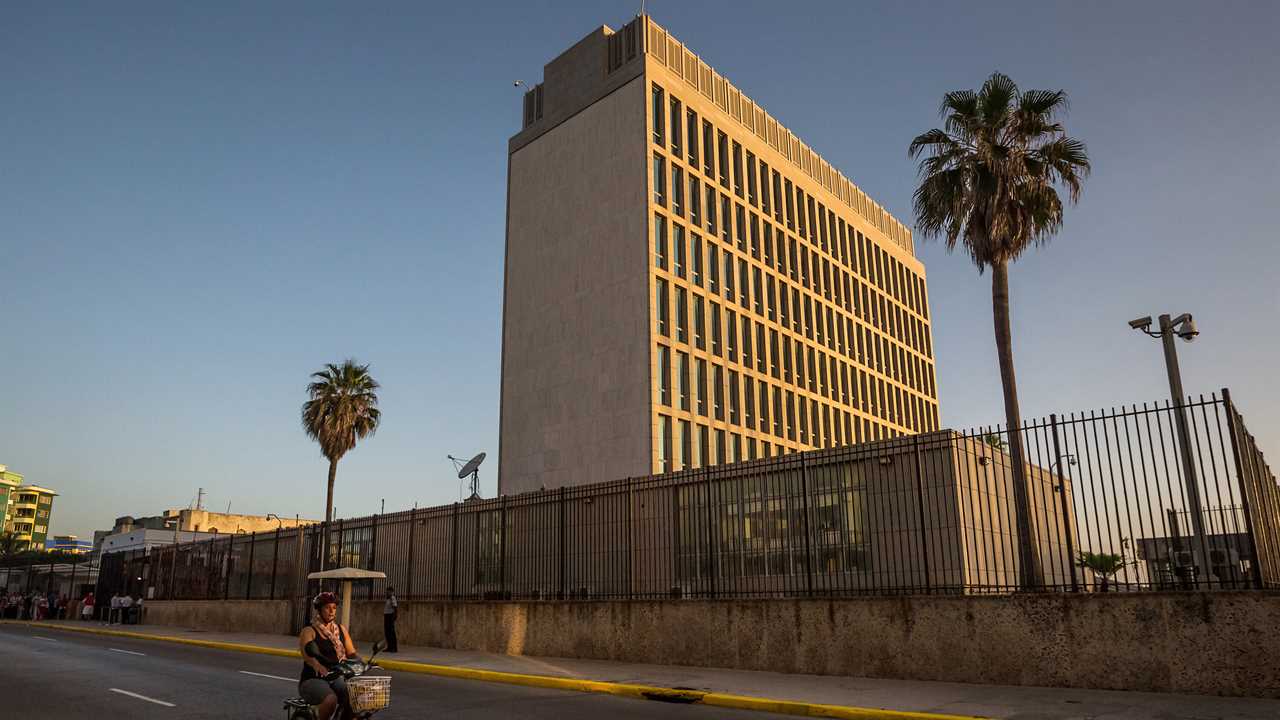
The House unanimously passed a bill Tuesday authorizing additional support for U.S. officials who were injured in a series of mysterious episodes that caused traumatic brain injuries.
The Senate first passed the legislation, pushed by Senator Susan Collins, Republican of Maine, on June 7. Because the House voted on that version of the bill, it will now go to President Biden to sign.
Passage comes as the number of incidents continues to grow. A C.I.A. officer traveling in India with William J. Burns, the agency director, was injured earlier this month, exhibiting symptoms consistent with the so-called Havana syndrome. The incidents could be attacks by hostile intelligence services, but the United States has not drawn a conclusion about what the precise cause is and who is responsible.
Officials believe that more than 200 people could have been injured in episodes. While microwave devices or other directed-energy equipment are a possible cause, administration and congressional officials have not determined the source of the injuries, which were first observed in Cuba and have come to be known as Havana syndrome.
Since then, U.S. diplomats and C.I.A. officers have been injured in China, Central Asian countries and Europe, including Vienna. At least two possible episodes in the United States are being investigated, but officials are even more unsure about the circumstances.
“The number is going up all the time,” said Representative Adam B. Schiff, Democrat of California and the chairman of the House Intelligence Committee, in an interview this summer.
The bill was originally expected to be passed by the House in July, but partisan procedural battles delayed the vote.
Mr. Biden supports the bill and congressional efforts to provide additional support to victims, a senior administration official said. In a July address to intelligence officers, Mr. Biden said his administration was making sure that people affected in the incidents “have the best possible care.”
Some officials have pointed to Russia as the most likely culprit, which Moscow has repeatedly denied. Other officials believe multiple adversaries could be responsible.
“From the descriptions that I’ve heard firsthand from some of the victims, they seemed quite purposeful, quite deliberate and very specific,” Mr. Schiff said. “And that’s suggestive of a foreign bad actor.”
But, he added, “there is still much more we don’t know about this than we do.”
The bill will ensure that the Biden administration keeps Congress informed about its investigation and will compensate victims for their injuries, Ms. Collins said.
“Far too many ‘Havana syndrome’ victims have had to battle the bureaucracy to receive care for their debilitating injuries,” she said in a statement. “For those victims, the Havana Act will ensure that they receive the financial and medical support that they deserve. It also affirms our commitment to making sure that our government finds out who is responsible.”
Some victims of the attacks said they have struggled to get the government to cover medical costs for themselves and family members. Several praised the congressional action, including Mark Lenzi, a State Department security engineering officer who was injured in China, from what some officials believe was a pulsed microwave attack.
“This legislation is crucial for those of us at the State Department injured in the line of duty who, like myself, have thousands of dollars of medical bills that the State Department has refused to pay,” Mr. Lenzi said.
Mr. Burns, the C.I.A. director, has spoken publicly about the importance of discovering the cause of the episodes and has made a priority of improving health care for affected agency officers, including increasing access to the Walter Reed National Military Medical Center, which has expertise in treating brain injuries. But some victims’ groups said the State Department had been slower to improve how it had handled cases.
Mr. Schiff said the legislation established criteria for treatment and compensation. It should also prod the government to standardize the reporting and classification of the episodes.
While some officials have said they are worried that people experiencing symptoms unrelated to the Havana syndrome could seek compensation or treatment, Mr. Schiff said he was more worried about giving care to people who need treatment, and the bill errs on the side of providing assistance.
“We want to make sure that everybody that’s been impacted by these anonymous incidents gets the health care that they need,” he said. “So we want it to be broadly interpreted.”






